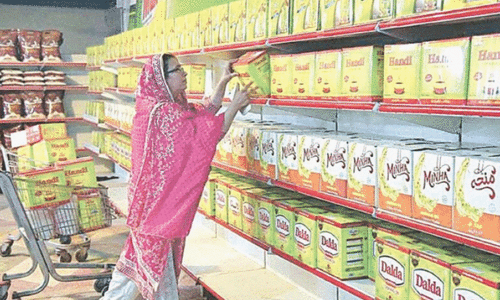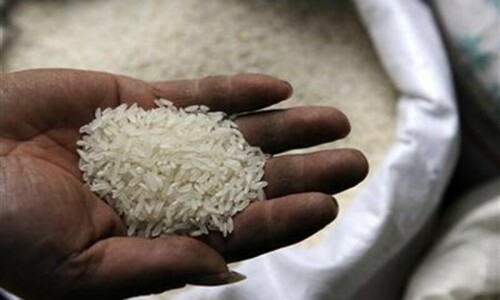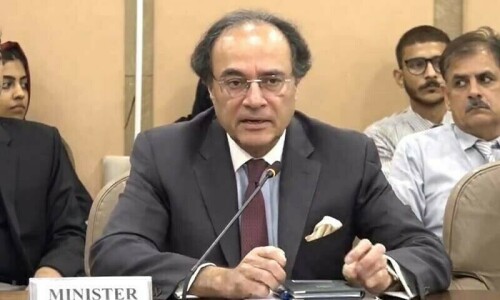FAISALABAD: Industrialists believe that the IMF package is eyewash, which would hurt industry, especially the textile sector. The entrepreneurs of the textile capital of Pakistan are of the view that the package would land Pakistan in trouble instead of resolving its economic woes. The real intentions of the organisation are to exploit a country in crisis by destroying its industry, they argued.
Waheed Khaliq Ramay, chairman, Council of Powerloom Owners, expressing dismay over the package, said that the powerloom sector had received an immediate blow after government’s refusal to withdraw withholding tax imposed on the sector.
He claimed that prior to the approval of IMF package, the government was about to remove this tax, but it backed out of its pledge at the eleventh hour after striking a deal with the IMF.
He said that it seemed that the government was still undecided on issues faced by the textile industry.
He asked the government to take immediate notice of the situation and announce a comprehensive policy for providing lucrative incentives to exporters instead of following IMF conditionalities.
He said although the textile sector is considered backbone of the country’s economy as it earns foreign exchange which helps country become independent economically, the rulers were not bothering to resolve problems of the textile industry.
He said industrialists had been fighting for their survival, and want a level-playing field, decrease in utility tariffs, uninterrupted power and gas supply, free access to international markets and revival of research and development facility.
Faisalabad has been a source of impetus for country’s economy as its textile sector fetches nearly $3 billion annually, strengthening the national exchequer.
The sector also provides jobs to more than one million people. However, half of industries have been facing critical financial crisis and the industry was laying off redundant manpower.
Javed Aslam, former chairman of the Pakistan Hosiery Manufacturers Association (PHMA), said that the sector opposes the IMF, and the loan approved was neither sufficient nor a solution to resolve issues faced by the country’s economy.
The IMF would dictate government not to extend subsidy to key sectors in trouble.
“The textile industry can provide $3 billion to the government easily if it introduces business-friendly policies and provides a level-playing field to entrepreneurs.”
He urged the government to announce subsidy for industry instead of following the IMF, otherwise, India, Sri Lanka Bangladesh, China and other rivals would grab Pakistan’s share. Earlier, he said government had promised to revive the research and development facility, however, it backed out after a deal with the IMF.
He said now it was the time to capture international markets again as businesses were flying from China because of high prices and some other factors.
Zohaib Nasir, a young exporter, said export orders had come down to an alarming level mainly because of a hostile international climate for Pakistan and high prices of products.
He said exporters had been facing a serious financial crisis due to escalating tariffs of utilities, high rates of mark-up on credit and heavy taxation, which resulted in low exports.
Owners had closed down scores of small industrial units and a good number of them were on the verge of closure, he added.Zahid Chohan, a textile trader, said after the package the government had been mulling to levy tax on cash withdrawal of more than Rs25,000. The situation would create a fear among the business community and also reduce government tax ultimately.
Because, he said most of the businessmen would go for cash business instead of making transactions through banks.
Scores of textile workers and industrialists had staged a protest rally the other day against suspension of gas supply to the sizing units, supposed to be backbone of the textile industry.
The workers blocked Sargodha Road nearly for two hours and lit bonfires in front of the Sui Northern Gas Pipelines Company Limited (SNGPL) demanding uninterrupted supply of gas.
A labourer Amjad said he did not know enough about the IMF package, but it was evident that our experience with this organisation was lousy.
This time, he said, the IMF would trap rulers. He urged the government to take labourers into confidence and devise a strategy with their help to boost the economy.
He said labourers had the potential to defeat all sorts of financial ills.














































Dear visitor, the comments section is undergoing an overhaul and will return soon.